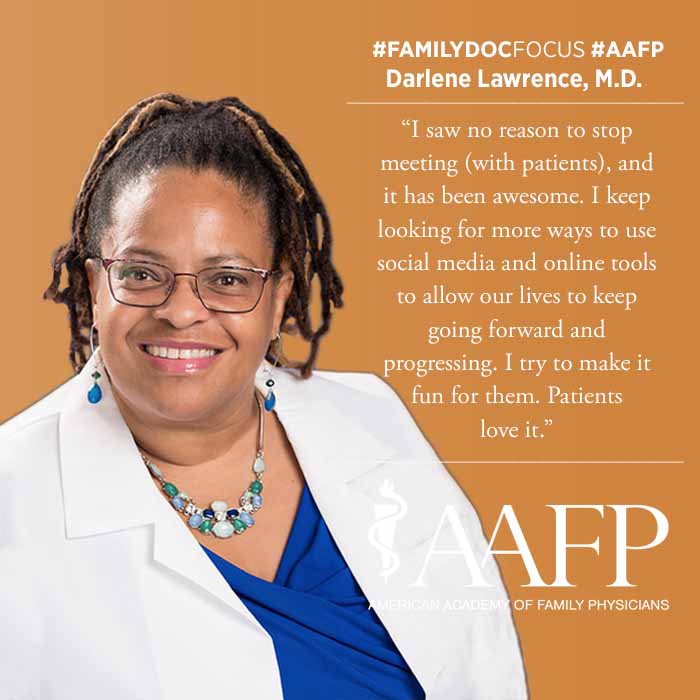Staying Connected With Patients Despite Barriers
May 18, 2020 02:00 pm David Mitchell – Darlene Lawrence, M.D., watched with interest and hope as her children adjusted to experiencing many of their typical daily activities online. Due to the pandemic, school, meetings for Boy Scouts and Girl Scouts, and even orchestra rehearsals and ballet transitioned from face-to-face events to Zoom, and the family's church moved its services to Facebook and YouTube.

So when Unity Health Care -- the Washington, D.C., network of federally qualified health centers -- announced that it was temporarily canceling its patient group meetings and classes because of COVID-19, Lawrence had other ideas.
"I saw no reason to stop meeting, and it has been awesome," said Lawrence, who had been leading a group class focused on well-being, nutrition and exercise at her health center for more than two years before moving it online. "I keep looking for more ways to use social media and online tools to allow our lives to keep going forward and progressing."
Lawrence's class, now meeting on Zoom, offers elements of behavioral modification, mindful meditation, positive affirmation, exercise therapy and nutritional counseling, including cooking demonstrations.
"I try to make it fun for them," she said. "Patients love it."
Lawrence said some participants in the We Will class have transportation challenges and already have encouraged her to continue the online class when the pandemic ends.
She also has realized what a difference internet access can make in patients' lives -- and that many aren't aware there are programs that can help people in low-income households get access for less than $10 a month.
"You've got to ask about internet access," said Lawrence, who serves on the AAFP's Commission on Health of the Public and Science and its subcommittees on health equity and special public health issues. "That's something I'm going to change in collecting patient registration demographics. Internet access really makes a difference in people's lives."
Lawrence's class could be paving the way for other patient groups in her health system to move online. She said the prenatal centering groups and the opioid recovery group have had a few Zoom meetings.
Keeping her own class going was important not only to Lawrence and her patients, but also to family medicine residents who participate in the class as part of their patient-oriented primary care requirement. The online experience wasn't new for them. The Wright Center for Graduate Medical Education's National Family Medicine Residency has residents in three states and Washington, D.C., and it has been offering didactics online since 2014.
"I've been in this model of distance learning for more than five years," said Lawrence, who is core faculty for the program. "This is what we needed to do."
Lawrence works with residents in person one day a week, precepting during a walk-in clinic. The rest of her work, for now, is through telemedicine working from home, while her high school- and college-age children are also at home.
Lawrence's current stint on the Academy's Commission on Health of the Public and Science is her second. She also has served on a variety of AAFP committees and task forces, has been part of the Academy's AMA delegation and for many years served as a delegate and alternate delegate to the AAFP Congress of Delegates. Her involvement with the AAFP dates back to her service as a resident member of the Board of Directors in 1992-93, which she likened to earning a master's degree in public health.
"I felt I learned so much about the business of medicine, medical education -- a plethora of areas that dealt with the medical field -- that I didn't get in medical school or residency," said Lawrence, who also has served as president of both the Washington, D.C., AFP and its foundation. "I still take things back from my AAFP interactions, not only to my medical practice but also for my residents."